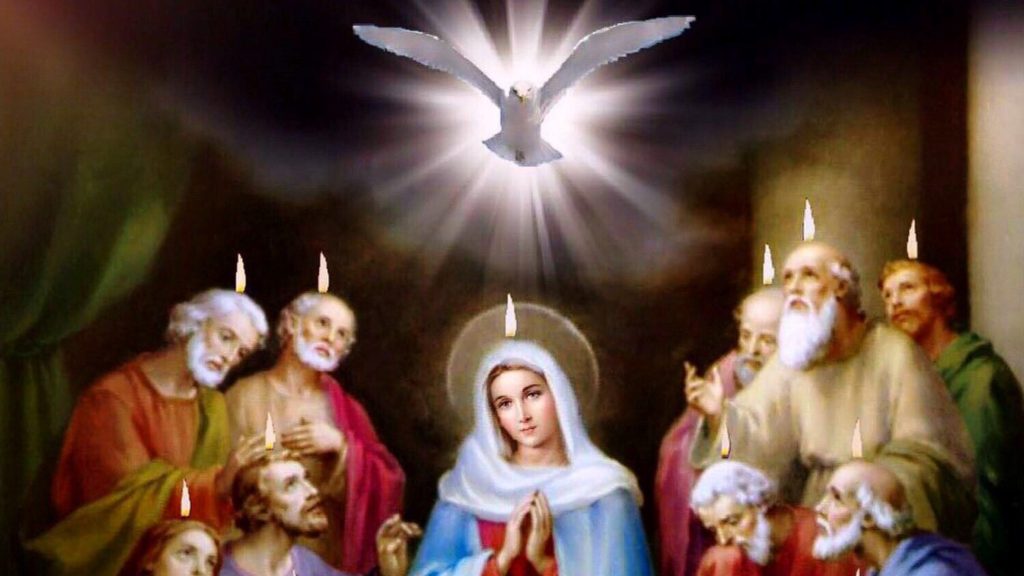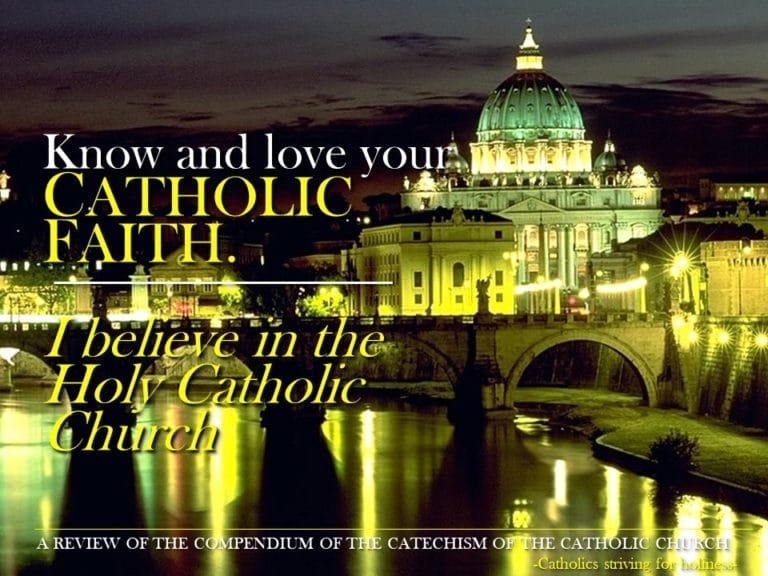KNOW AND LOVE YOUR CATHOLIC FAITH:
THE SACRAMENT OF BAPTISM.
Compendium of the Catholic Church nos. 252-264
- What names are given to the first sacrament of initiation?
- How is Baptism prefigured in the Old Covenant?
- Who brought to fulfillment those prefigurations?
- Starting when and to whom has the Church administered Baptism?
- In what does the essential rite of Baptism consist?
- Who can receive Baptism?
- Why does the Church baptize infants?
- What is required of one who is to be baptized?
- Who can baptize?
- Is Baptism necessary for salvation?
- Is it possible to be saved without Baptism?
- What are the effects of Baptism?
- What is the meaning of the Christian name received at Baptism?
252. What names are given to the first sacrament of initiation?
This sacrament is primarily called Baptism because of the central rite with which it is celebrated.
- To baptize means to “immerse” in water. The one who is baptized is immersed into the death of Christ and rises with him as a “new creature” (2 Corinthians 5:17).
- This sacrament is also called the “bath of regeneration and renewal in the Holy Spirit” (Titus 3:5); and it is called “enlightenment” because the baptized becomes “a son of light” (Ephesians 5:8).
253. How is Baptism prefigured in the Old Covenant?
In the Old Covenant Baptism was pre-figured in various ways: water, seen as source of life and of death; in the Ark of Noah, which saved by means of water; in the passing through the Red Sea, which liberated Israel from Egyptian slavery; in the crossing of the Jordan River, that brought Israel into the promised land which is the image of eternal life.
254. Who brought to fulfillment those prefigurations?
All the Old Covenant prefigurations find their fulfillment in Jesus Christ.
- At the beginning of his public life Jesus had himself baptized by John the Baptist in the Jordan.
- On the cross, blood and water, signs of Baptism and the Eucharist, flowed from his pierced side.
- After his Resurrection he gave to his apostles this mission: “Go forth and make disciples of all nations, baptizing them in the name of the Father and of the Son and of the Holy Spirit” (Matthew 28:19).
255. Starting when and to whom has the Church administered Baptism?
From the day of Pentecost, the Church has administered Baptism to anyone who believes in Jesus Christ.
256. In what does the essential rite of Baptism consist?
The essential rite of this sacrament consists in immersing the candidate in water or pouring water over his or her head while invoking the name of the Father and the Son and the Holy Spirit.
257. Who can receive Baptism?
Every person not yet baptized is able to receive Baptism.
258. Why does the Church baptize infants?
The Church baptizes infants because they are born with original sin.
- They need to be freed from the power of the Evil One and brought into that realm of freedom which belongs to the children of God.
259. What is required of one who is to be baptized?
Everyone who is to be baptized is required to make a profession of faith.
- This is done personally in the case of an adult or by the parents and by the Church in the case of infants.
- Also the godfather or the godmother and the whole ecclesial community share the responsibility for baptismal preparation (catechumenate) as well as for the development and safeguarding of the faith and grace given at baptism.
260. Who can baptize?
The ordinary ministers of Baptism are the bishop and the priest.
- In the Latin Church the deacon also can baptize.
- In case of necessity any person can baptize provided he has the intention of doing what the Church does. This is done by pouring water on the head of the candidate while saying the Trinitarian formula for Baptism: “I baptize you in the name of the Father and of the Son and of the Holy Spirit”.
261. Is Baptism necessary for salvation?
Baptism is necessary for salvation for all those to whom the Gospel has been proclaimed and who have had the possibility of asking for this sacrament.
262. Is it possible to be saved without Baptism?
Since Christ died for the salvation of all, those can be saved without Baptism who die for the faith (Baptism of blood).
- Catechumens and all those who, even without knowing Christ and the Church, still (under the impulse of grace) sincerely seek God and strive to do his will can also be saved without Baptism (Baptism of desire).
- The Church in her liturgy entrusts children who die without Baptism to the mercy of God.
263. What are the effects of Baptism?
- Baptism takes away original sin, all personal sins and all punishment due to sin.
- It makes the baptized person a participant in the divine life of the Trinity through sanctifying grace, the grace of justification which incorporates one into Christ and into his Church.
- It gives one a share in the priesthood of Christ and provides the basis for communion with all Christians.
- It bestows the theological virtues and the gifts of the Holy Spirit.
- A baptized person belongs forever to Christ. He is marked with the indelible seal of Christ (character).
264. What is the meaning of the Christian name re ceived at Baptism?
The name is important because God knows each of us by name, that is, in our uniqueness as persons.
- In Baptism a Christian receives his or her own name in the Church.
- It should preferably be the name of a saint who might offer the baptized a model of sanctity and an assurance of his or her intercession before God.


